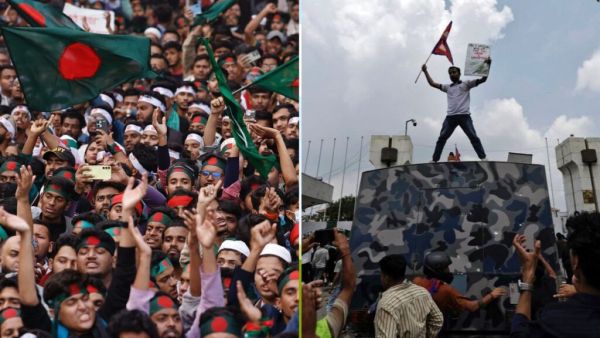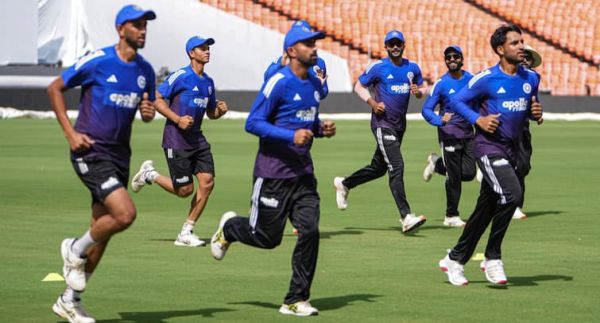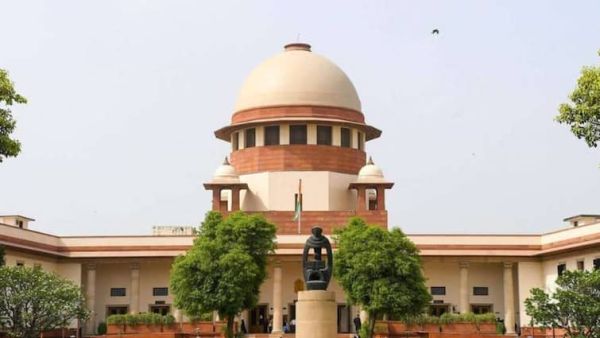
Tarique Rahman’s gift to Nobel Laureate Professor Muhammad Yunus during a June 2025 meeting in London, which includes Greta Thunberg’s book, ‘No One is Too Small to Make a Difference’, carries a deep significance.
It presents a clear message that every committed individual has the potential to bring profound change to mankind through bravery, dedication, strong ideals, and action.
Greta Thunberg as a young climate activist has already shown to the world how a young schoolgirl could shake the global climate change landscape and positively inspire and pursue powerful politicians across the world to adopt favourable actions for the protection of the planet.
On a global level, the youth have the same potential to change. With a little support and guidance, their hidden potential can be unlocked, and they can go beyond protests to create real solutions for the nation.
For example, in Bangladesh, the quota reform protests highlighted the frustration of the youth accumulated over many years of chronic deprivation, injustice and lack of opportunities in accessing government jobs.
It resulted in massive unemployment, particularly in large cities.
The quota reform—which began as a demand to end inequity and unfairness in accessing government jobs—quickly turned into a wider home-grown call for overthrowing Sheikh Hasina’s fascist regime, with the aspiration to restore human rights and democracy, reduce corruption, secure accountability, and finally, to build an equitable and prosperous Bangladesh.
This call—and the series of events that followed—clearly demonstrate that the youth are unwilling to waste time.
They know the type of space they prefer to build for themselves and the generations to come, and moreover, they are no longer satisfied with empty political promises that they have been witnessing for years: they are truly impatient for real change.
Just last month, a powerful youth-led movement in Nepal against corruption, nepotism, and restrictions on digital freedoms, was on full display for the world.
Using electronic platforms like Discord and Instagram, they organised themselves by launching massive nationwide movements to demand accountability, transparency and fairness in state affairs.
Their activism proves that the younger generation is focused, and full of determination.
They know what they want, and the tools provided by technological advancements—along with their aspirations—is reshaping how politics are going to be run in the years to come.
Whether it is Bangladesh, Nepal, or any other part of the world, such recent movements have shown that the youth are resilient, persuasive, creative, and determined. They are focused and ready to break conventional cycles, pushing their countries toward a new era.
A new era for Bangladeshi politics
Since independence in 1971, most parts of Bangladeshi politics have been stuck in cycles of distrust, conflict, violence, and revenge.
However, due to rapid technological growth and better access to information, today’s youth yearn for something different: a better political landscape and a better life.
They are demanding forward-looking, modern, knowledge-based, and development-centric politics that focus on fairness, ideas, innovation, equity, and a brighter future for all.
Matching the growing aspiration of this new generation and building on lessons learnt from the past, the Bangladesh Nationalist Party is committed to construct this new horizon.
With the announcement of the 31 points to repair Bangladesh, the party has pledged to introduce inclusive, knowledge-based, development-centric and forward-looking politics.
This will ensure that no one will be left behind, and that young people can go beyond protests to actively contribute in shaping policies and building a modern Bangladesh.
The future belongs to the youth
The Bangladeshi youth occupy more than half of its population. With the introduction of need-based education and skill development programmes, they can be made the country’s greatest strength.
If they are given the chance to be environmentally conscious, skilled, and involved in decision-making, Bangladesh can move towards a stronger economy, modern technologies, and a more just society.
A greener, fairer Bangladesh
Major large-scale threats that affect Bangladesh today necessitate shared knowledge, solutions, and innovation, for which political parties must move away from hatred and personal attacks.
Youth-led leadership can drive home this change, because their energy and vision will ensure that politics is about solutions, not division.
Tarique Rahman’s gift of Greta Thunberg’s book stands out as a reminder that no one is too small to bring change. Across South Asia—especially in Bangladesh, Nepal and India—young people are already showing the way.
By nurturing and supporting the strength of the youth, the wisdom of leaders like Professor Yunus, and Tarique Rahman’s commitment to knowledge-based, development-focused politics, Bangladesh can step into a new horizon: one of respect, peace, fairness, and a secure future for generations to come.
The author is the adviser to the Chairperson, Bangladesh National Party, and a former World Bank senior leader.
The opinions expressed in this article are those of the author and do not purport to reflect the opinions or views of THE WEEK.
-
WhatsApp will make you rich! These 5 ways to earn a lot every month

-
ICC Test Rankings: India Slips Out Of Top 3 - Know Which Team Is No.1

-
Dalal Street Closes Higher, Sensex Tests 82,000 - Here's What Led To The Rally

-
‘I Had A Breakup 10 Days Before’: Ranveer Allahbadia On India’s Got Latent Controversy

-
Bihar SIR — 'Share Names Of 3.66 Lakh Deleted, 21 Lakh Added Voters': SC Flags ‘Confusion Over Add-Ons’
